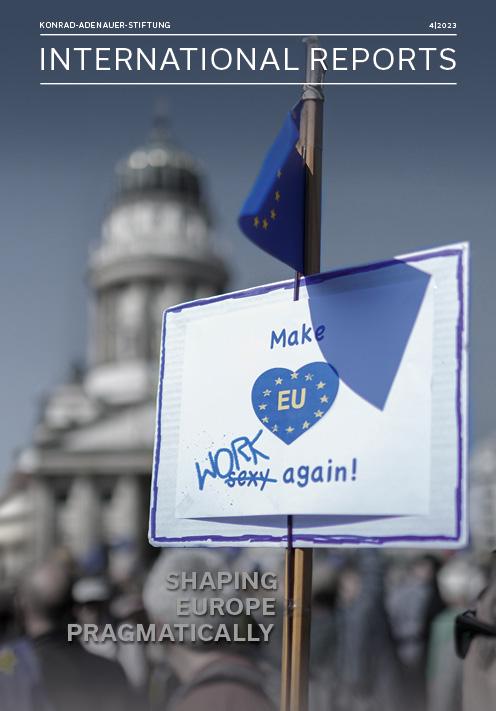Europe must finally speak with one voice! We have heard that call again and again. In some cases it has been heeded, but more often, it has not – and things are not necessarily getting better. But if that is the case and the big European policy breakthrough is not to be expected in the near future, we should concentrate our energy on taking the many small, unspectacular but effective steps that will enable our continent to survive in an increasingly uncomfortable global environment. Read this issue of International Reports to learn about some of them.
View table of contentsAbout this series
International Reports (IR) is the Konrad-Adenauer-Stiftung's periodical on international politics. It offers political analyses by our experts in Berlin and from more than 100 offices across all regions of the world. Contributions by named authors do not necessarily reflect the opinions of the editorial team.
Order details
Our periodical on international politics is published four times a year. We provide you with background information on what is happening in the world – free of charge. Use our registration form and with just a few clicks you can read the digital version of our political journal or order the print version in German or English.
Editor
Dr. Gerhard Wahlers
ISBN
0177-7521
Benjamin Gaul
 benjamin.gaul@kas.de
+49 30 26996 3584
benjamin.gaul@kas.de
+49 30 26996 3584

Head of the Department International Reports and Communication
Rana Taskoparan
 rana.taskoparan@kas.de
+49 30 26 996 3623
rana.taskoparan@kas.de
+49 30 26 996 3623

Policy Advisor for Communication and Marketing





